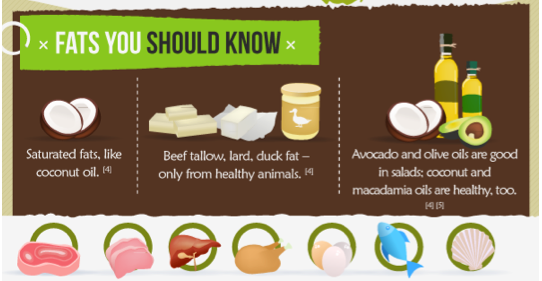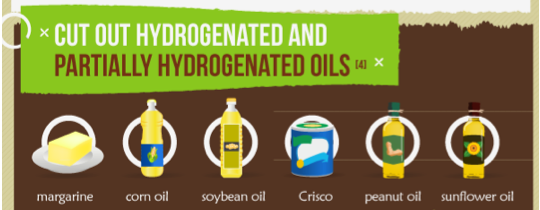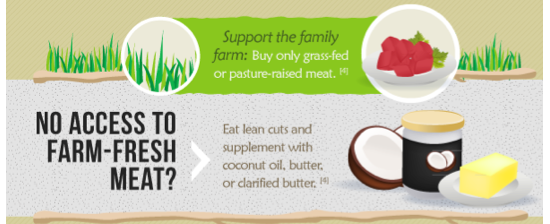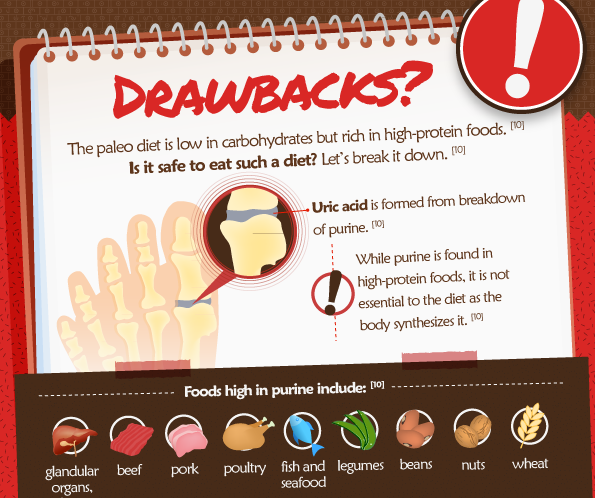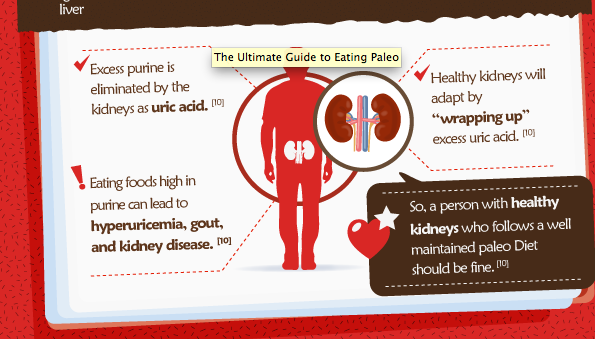Paleo is the new Atkins. I don’t actually think this. But it’s what everyone likes to say. It certainly is a way of eating that’s attracting a lot of attention…and with it some terribly hysterical mis-information.
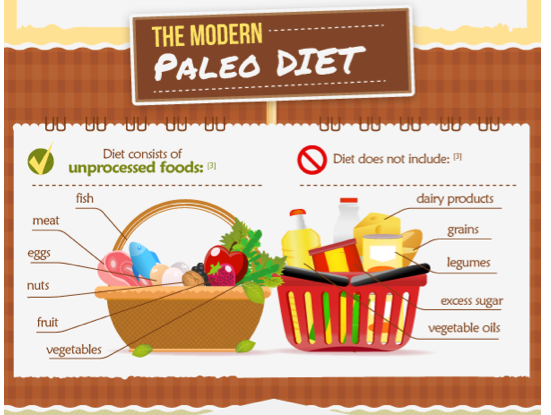
Wondering what the hell I’m talking about? How about I give a bit of a Paleo 101 rundown…with some pointers to how I’ve chosen to interpret this way of living. Because, as hopefully you know, I’m not into doing “diets” or being strict and draconian with my eating, or doing what I’m told I should do (this extends well beyond food, I’m afraid) or getting caught up in a fad.
I like to eat my way… and gently. And so: the below is not a guide to how I think YOU should eat. I’m simply sharing my experiences experimenting, which perhaps might prompt you to experiment, too.
To be honest, I’ve resisted writing too much about it previously, although a lot of you who quit sugar are asking whether you “should also be quitting carbs”. (Should, should, should.)
I’ve resisted in part because I’ve been wary of boarding too many bandwagons and becoming a dreary bore who tells other people what to do. And in part because I’ve wanted to distance myself from the Paleo bores. And there are many. And they are vocal!
But mostly I’ve resisted because I like to try things fully before I buy it and share it (although I’ve written about it briefly here and shared recipes here.).
I’ve now tried out the caper fully – for about five months. So, time to share:
The elevator pitch answer: what is the Paleo diet?
Also called the cave man diet, it’s about eating in a similar way to the way our ancestors – up until the agricultural revolution about 7-10,000 years ago – used to eat.
This equates to: meat, saturated fats (from animals, avocados, nuts etc), non-starchy vegetables, nuts, eggs and a little low-sugar fruit.
It means not eating: anything that arrived on the scene since farming and processing began (grains, sugars, vegetable oils, Dunkin’ Donuts).
But Paleo peeps vary their take on the details (see below). To this end it’s an approach, not a diet (there’s no manifesto or original author who cashes in on the idea).
Why would you do such a thing?
Because we evolved to eat this way – and metabolise this way – over millions of years. Grains and other “processed foods” require radically different metabolic and digestive processes. Our bodies simply haven’t adjusted to these different processes (evolution is a damn slow process) and so we struggle with these “new” foods at every mouthful. Our genes are 99 per cent the same as they were 10,000 years ago.
We haven’t changed genetically; our diets sure have. Ditto our waistlines and health…
The convincing bits for me:
Three things strike chords (and are good to take into the elevator with a doubter):
1. As our intake of grains and processed foods has increased, so has the incidence of diseases such as cancer and heart disease…at exactly the same rate.
2. Eating this way for five months had an impact on my health (see more below). By the way, it’s often suggested 30 days is long enough to try Paleo out.
3. Paleo eating, boiled down to basics, simply cuts out processed foods. If you follow the approach you can’t help but eat cleanly and ethically and environmentally better.
What, no grains? Won’t you get constipated or… something?
Actually, cutting out grains is the best thing you do for your guts if you have IBS, SIBO etc. For a good breakdown on “why no grains”, go here and download the fantastic podcasts from the Paleo Summit. The no-grains argument is explained fully. As is the impact grains will or won’t have on your bowels.
This is how I do it:
I no longer eat grains. I quit gluten a while back for AI reasons. In the past five months I’ve dabbled a bit with them…to see what happens…but each time I’ve bloated up and felt foggy of head. Not massively so. And not enough to be a pain in the butt when my Aunt makes a beautiful stirfry with rice noodles, say. I just choose to lean away from them and, frankly, don’t miss them (and when I do, I just have a piece of gluten free toast with peanut butter without guilt or fear).
What about dairy and legumes and root veggies?
Yeah, the former have been introduced in the past 10,000 years, and the latter are made up of sugary starches that we struggle to break down. And, yep, some paleo obsessives don’t touch them. But me…
This is how I do it:
I eat dairy – happily. I used to think I had issues with dairy. But I tried a few things. I now eat full-fat dairy only (lots of people with issues find switching to full-fat is better on their guts… this is because when they remove the fat, they remove alot of the lactase, the enzyme that breaks down the problematic lactose). And I avoid soft uncultured cheeses (the cultured ones have less lactose). I’m yet to fully embrace the raw milk thing… but lots of reports suggest those with milk issues who switch to raw milk suddenly have no milk issues…and also see other health issues disappear! I’ll write more on this at some stage. For more in the interim, the comments in this post are really informative.
I eat legumes occasionally. But I sprout them to break down the enzymes and limit them a lot. Not because I’m following a rule, but because too many do muck with my guts. Ditto too many nuts (I also sprout these and personally have to limit them heavily).
I don’t fixate on the “was it around 10,000 years ago” thing… I ask whether my metabolism can really handle the food. I’m lucky that dairy is fine by me. I don’t eat potatoes – never have…they hurt my stomach – and find sweet potato a little hard to swallow at times. But pumpkin makes me happy.
But what about all that meat?
Sure, it can all seem like a very meat-based way of eating. But…
This is how I do it:
I actually eat more vegetables than the average vegetarian. Serious. My eating is now very much based on eating large amounts of veggies (esp green ones), about 6-8 cups a day.
I eat veggies three meals a day.
I use meat as an addition, often for flavour, and not in huge quantities. So, I’ll throw into a bowl of vegetables a rasher or two (max) of bacon (cooked and crumbled), a small handful of cooked chicken, or a small tin of tuna or some grilled sardines. I’ll eat a meat-based dinner if I go out (eg a steak) once a week/fortnight (I’m careful to choose places who commit to good quality meat) and if, say, I make up a slow-cooked stew (with vegetables) it’ll use 500g of meat…which I eat over about 4-5 servings.
So, not so much meat.
My blog is full of different recipes for eating this way, if you’re interested.
And the fat?
Read my take on the whole fat argument here.
This is how I do it:
I pretty much follow the below. Also check out this great rundown.
I’ve lost weight eating more fat, as I’ve mentioned before.
Is it ethical?
All that meat? Carbon miles? The animals?
This is something I’ll discuss in a lot more detail soon, but my research is fast finding that a paleo diet is the most ethical way to eat. A central tenet is that animal products must be grass or pasture-fed (not grain-fed), free range, organic and untreated to fit the paleo philsophy. Until I give a proper account, you’ll have to take my word for it.
This is how I do it:
I invest in the best meat…and eat less of it. I buy locally-reared meat and eggs from the markets. If I couldn’t, I’d find a butcher or supplier who does (have a look here for starters) or I’d get it delivered. I know not everyone is flush with cash for buying organic meat, which can be expensive. If you’re not flush, maybe buy less-but-better meat? If you are flush, then I think there’s a responsibility to increase the demand for these more ethical foods…just saying.
Damn it’s expensive
Yes and no. Read above for my less-but-better approach. Also…
This is how I do it:
I make choices and prioritise. Read this post on which veggies you should buy organic, and which are OK to buy standard.
Also, I choose to buy better food and less supplements. Eating grass fed meat, for instance, supplies significant amounts of beneficial omega-3 fats such as EPA and DHA. Grass-fed meat also helps with a bunch of other health issues.
Are there health issues?
This info graphic kind of answers things…if your health is recalibrated, no. While ever it’s damaged from bad diet, there could be some problems, though.
Some other things to know:
- paleo isn’t about grazing: it’s 3 – 4 proper meals a day.
- it includes only a small amount of fruit – one serve/day of low-fructose fruit (which is my overall approach). In order of preference. For more go here: What about the fructose/glucose content of fruits?
- Paleo also incorporates a particular type of fitness…. exercise that’s not about slogging it out at the gym or running marathons. I’ve been exercising this way for a while. Catch up here and here.
- A big part of the paleo approach is to sleep as our ancestors did: off to bed early, get at least 8- 9 hrs of sleep, etc
- Here is a great paper from Professor Loren Cordain exploring how to build a modern Paleo diet.
- the paleo diet often sees you lose weight, due to less sugar and more fat. You can read about this here.
- The paleo diet helps halt (and prevent) a number of degenerative diseases, especially for autoimmune sufferers. Here is a 7-part video series by Prof. Loren Cordain describing the etiology of Multiple Sclerosis. Keep in mind, this is the same process which underlies ALL autoimmune disease. Or check out Nora Gedgaudas’ Primal Body Primal Mind for the full dossier on why this is so. Or my podcast with Nora here.
There’s much more I can share, but perhaps the most important bit is…
Do I like eating Paleo?
Yeah, I do. So long as I don’t have to say, “I eat Paleo” or “I’m a Paleo”. I take on many of the sensible Paleo principles, is all. And leave out the hysteria. Proof is in the pudding, of course:
* I have less bloating and gas. In fact, none at all these days.
* I still have bowel issues (I won’t overshare here, but suffice to say this is due to longterm issues which this way of eating is starting to unravel). Again I really recommend some of the lectures on digestion in the Paleo Summit podcasts if you have digestion issues too.
* I find cooking easier and eating out is just fine. It’s all quite effortless. Most pubs and restaurants cook meals that are meat and vegetables.
A tip: at breakfast, order the poached eggs with toast or the fritatta with toast…but ask for spinach or mushrooms instead of the toast. That is, make sure you stress the instead of bit, so you’re not left paying for toast and the side order. I think this is fair.
* I eat 3 meals a day instead of the 5-6 in the past
* I get less cravings and find it even easier to avoid sugar now
* I’ve lost weight – about 2-3 kilos – and my skin is the best it’s ever been. I don’t think this is due to anything too magical. Eating this way steers me away from crap.
OK. I’ve exhausted myself. If you find this interesting, why don’t you let me know if there are particular issues you’d like me to go into further…
By the way, you can find the rest of the infographics at Greatist.com’s the ultimate guide to eating paleo.
